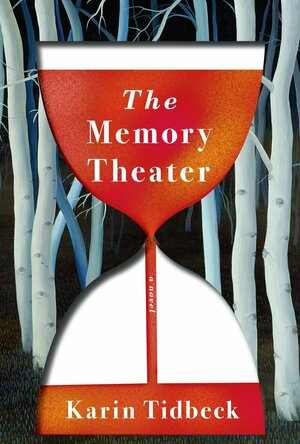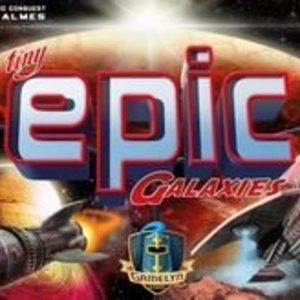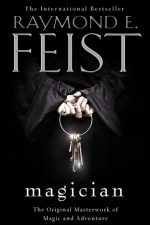
Game Net for - NHL 17
Reference and Entertainment
App
NHL 17 introduces three new modes that connect you to the sport to live out your hockey fantasy. The...

The Memory Theater
Book
From the award-winning fantasy author of Amatka and Jagannath --a fantastical tour-de-force about...
Purple Phoenix Games (2266 KP) rated Tiny Epic Galaxies in Tabletop Games
Jul 16, 2019
In Tiny Epic Galaxies, you are the leader of a galactic empire looking to expand its borders and influence across space. Unfortunately, you are not the only one vying for power – competing galactic leaders are also gathering resources and sending out scouts to planets in hopes of bringing them into the folds of their own empires. Can you outwit your opponents and stake your claim on these new planets before your rivals do? Or are you doomed to live under someone else’s rule forever?
DISCLAIMER: There are several expansions to this game, but we are not reviewing them at this time. Should we review them in the future we will either update this review or post a link to the new material here. -T
Tiny Epic Galaxies is a game of dice rolling and area control/influence in which players take turns rolling dice and activating powers in order to gather resources and increase their influence on newly-discovered planets. On your turn, you will roll a specified number of dice, and activate them in any order you choose to perform any of the available actions: move a ship, advance your colonization of a planet, acquire resources, or utilize the special power of a planet you control. Gaining control of a planet earns victory points, and the game ends once a player has reached 21 VPs. Sounds simple enough, right? But here’s a twist – when you activate a die on your turn, any other player can spend a resource to follow your action and perform the same action you just did. Make sure you keep an eye on your opponents’ ships and resources – a beneficial action for you could also earn your opponents a planet!
My absolute favorite part of all the Tiny Epic games is that they have so much more to offer than meets the eye, and Tiny Epic Galaxies is no exception. The premise of the game is simple and easy to learn, yet mastering the strategy is what keeps me coming back for more. There is no single strategy for guaranteed success, and the necessity to adapt strategy based upon your dice rolls keeps the game engaging and exciting. You may have a plan in mind, but unless the dice cooperate, you’ll have to adjust that plan on the fly. And you’ve also got to pay attention to your resources and your opponents’ turns, because you might be able to capitalize on their dice if you can afford the cost. It could potentially always be your turn, even if it’s not your official turn, since you have the ability to follow an opponent’s action. You’re coming up with your own strategy, while also trying to decipher your opponents’ strategies so you can outwit them and earn the most VPs the fastest.
Another great part of this game is that there is a good amount of player interaction, but not in a way that feels confrontational. In some situations it may feel like a bit of ‘take that,’ but remember – you’re the one who gave them the opportunity to take that action! Without you taking the action in the first place, your opponent would not have had the chance to follow you! Your strategy must transcend your individual galaxy and also take into account every other galaxy in play. In Tiny Epic Galaxies, you’re constantly interacting – some interactions are just more subtle than others.
Tiny Epic Galaxies is perhaps my favorite Tiny Epic game to date. It’s quick, simple, and yet deceptively strategic. Plus the little spaceships are so cute! If I had to pick one Tiny Epic game to use to introduce someone to the series, I would pick this one. Purple Phoenix Games gives Tiny Epic Galaxies an out-of-this-world 17 / 18.

Pavilion: Touch Edition
Games
App
Designed exclusively for 64-bit devices requiring at least iPhone 5s, iPad Mini 2, iPad Air, iPad...
Awix (3310 KP) rated Gods Of Egypt (2016) in Movies
Feb 10, 2018 (Updated Feb 10, 2018)
Well, the plot is nothing special and the film often seems to be on the verge of sending itself up, but on the other hand it's visually interesting and the choice to treat the weirder bits of Egyptian mythology as being literally true (boss-god Ra is obliged to drag the sun around the Earth every day, on a length of chain attached to the back of his flying boat) means the story is at least a bit different.
You can, I suppose, complain that none of the people playing Egyptians in this film are actually Egyptian; many did, and I suppose I must have missed them complaining in a similar vein when Japanese and coloured actors were cast as inhabitants of Scandinavian fantasyland in the Thor movies. But c'mon, guys, it's a film about Gerard Butler in a flying space chariot pulled by giant beetles - it is possible to take this sort of thing a bit too seriously. (I look forward to retiring to my bunker and listening to the flaming-torch-wielding mob as they mill around outside.)
Anyway, not a great movie by any stretch of the imagination, but hardly terrible, either, and at least it is pleasing to the eye and has a certain novelty.
Quite frankly difficult to follow, Ubiety includes many dream scenes that border on madness. “Since the dawn of time common folk and wise men have scratched their heads as they asked about topics to do with dreams, such as why do we have them?” (Page 9, PDF version) Through his dreams, Adam’s brilliant mind creates scenes based on human fears and curiosity, however, it is difficult to tell which parts of the novel are “reality” since everything is equally absurd.
Adam is a person who thinks too much, resulting in overanalysing every aspect of life. The imaginary monsters that haunt his dreams begin to seem less scary than the hidden evils in the real world. Through his writing, Kunowski questions whether we are truly free or are we slaves? Slaves to machines, slaves to technology, slaves to social norms and so forth.
Unfortunately, Ubiety is difficult to read, however, within the confusion, there are a couple of gems that make you think and philosophise about life, the world and reality. Heading each chapter with a quote from a historical thinker, Kunowski draws our attention to the “realities” of the past, present and future, encouraging us to challenge what we know and believe.

Walton Ford: Pancha Tantra
Book
This book features a natural selection: Ford's beautifully savage beasts and birds. Walton Ford's...

MultiCraft -- Survival Craft Build Sandbox Game
Games and Entertainment
App
#Fix many crash bugs, now I'm sure you'll like this awsome game!!! #Explore many amazing online maps...
You know, the way a lot of fatnsy stories do? Think Luke Skywalker, from the back-planet of Tattoine, or Frodo Baggins from Bagend, to name but two.
Rags to riches, basically.
Anyway, perhaps the key protagonist of this is the keep boy Pug, who, over the course of the story - finds himself a native of two worlds - that's where the 'Rift' from Riftwar comes in, as a magical rift in space connects them - during a time of war between those two planes.
He's not the only protagonist; just the main one - there's also his childhood friend Tomas, the princes Arutha and Lyam, the princess Carline, the magician Kulgan - but Pug is, to my mind, the key character, with most of those other characters introduced through their relationship to him.
Others have commented on the writing style employed by Feist - it may seem 'basic', however that in itself is no bad thing (and, remember, this book is now decades old) as Feist gives you just enough information to envisage your own world. A bit more, perhaps, than the thumbnail sketches of Terry Pratchett (incidentally, one of my favourite authors), but nowhere near the level of detail that JRR Tolkien that could make The Lord of The Rings, well, a bit of a slog at times!

Darkroom – Photo Editor
Photo & Video and Social Networking
App
Save yourself from the multi-app workflow and discover the most well-designed, integrated, and...



